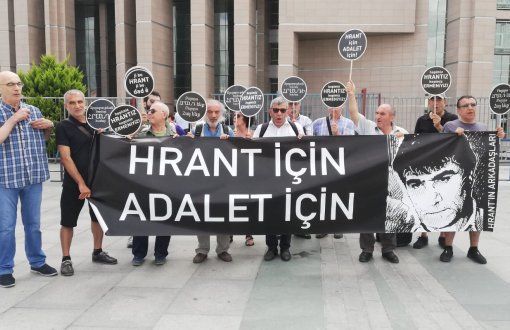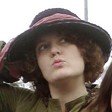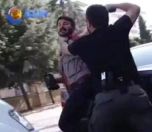ELİF AKGÜL IN DİYARBAKIR
DİHA News Director: The More Oppression Increases the More Solidarity Hardens

Bianet along with a group of journalists went to Diyarbakır province in southeastern Turkey before November 1 General Elections and visited Diyarbakır bureau of Dicle News Agency (DİHA).
We aimed to act with solidarity with DİHA of which website has been blocked 24 times and listen to the story of the journalists in Diyarbakır. The bureau was at the same building with Azadiya Welat daily, Kurdi-Der and Aram Publishing House.

DİHA Editor in Kurdish language, Ferzande Taşan, Editor in Turkish language and Diyarbakır News Director Ömer Çelik welcomed us.
Çelik had worked in İstanbul bureau of DİHA for years and was in prison between 2011 and 2013 for the case of Group of Communities in Kurdistan (KCK).
Taşan also was a former arrested free media member.

|
Police raid against DİHA, Azadiya Welat, Aram, Kurdi-Der |
|
The police raided DİHA, Azadiya Welat, Aram, Kurdi-Der on September 28 and detained 32 employees without a search warrant. Journalists were released after being searched for gunshot residue. |
Çelik: DİHA interns and editors suffered oppression by the police
We talked about the oppressions against the journalists:
"DİHA interns, reporters, editors and news director were verbally abused or threatened by the police," said Çelik and emphasized DİHA was not the only one that was oppressed by the police.
"It is like a tradition for Free Media. They put a gun against the head of our friend, point guns without reason. We are alive, that is the difference from the 1990s...
"Nobody would have known the raid against DİHA if it had happened three months before.
"Making news or taking photographs versus the state, you can be a target since it creates fear. However, the fear bears the solidarity.
Who is Ömer Çelik?
Ömer Çelik started journalism at Anadolu Agency in 2007. He has been working at DİHA since 2007. He was arrested in December 2011 while he was a reporter at İstanbul bureau of DİHA but released in June 2013. Çelik works as News Director of DİHA Diyarbakır bureau.
* This tour was coordinated by P24.
Click here to read the article in Turkish
.jpg)
This publication has been produced within the partnership with Osservatorio Balcani e Caucaso for the European Centre for Press and Media Freedom (ECPMF), co-funded by the European Commission. The contents of this publication are the sole responsibility of IPS Communication Foundation and can in no way be taken to reflect the views of the European Union.
Hrant’s Friends on Watch at 75th Hearing

2 People Released from Prison in Hrant Dink Case

Hrant’s Friends are at Justice Watch at 72nd Hearing

Afrin Resident Blames ‘FSA’, Habertürk TV Translates as ‘YPG’
.jpg)
7th Hearing in Cumhuriyet Trial
.jpg)








